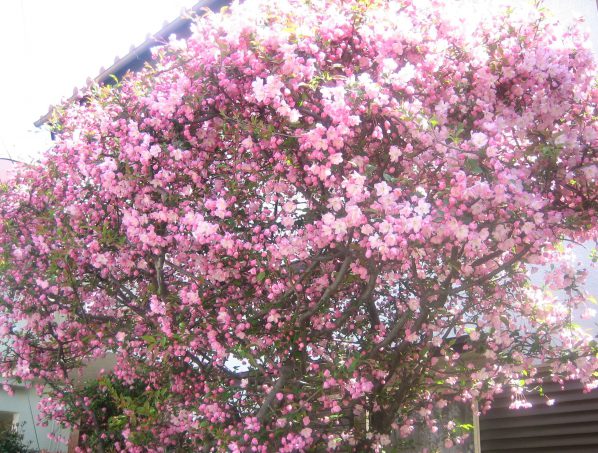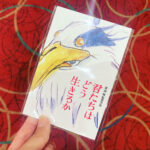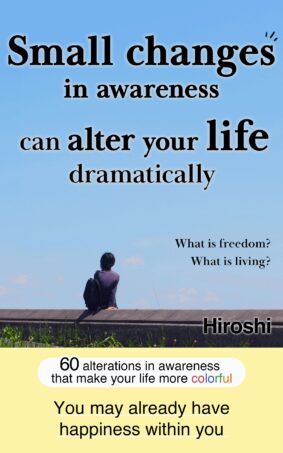Meaning of Omotenashi
Omotenashi is Japanese.
This is one of the Japanese words which can not be translated into English in one word.
This word became famous when Kurisuteru Takigawa made a speech to introduce Japan in 125th IOC Session that held in Argentina.
Tokyo became the venue of Olympic in 2020 and it is certain that her speech made a big effect on it.
But what is Omotenashi?
Is that just a good service or a hospitality?
If so I think other country also have as I myself was once traveler and was treated well in many countries.
It is not only Japan.
Then again what is Omotenashi?
I introduce its origin and the meaning of Omotenashi with my thought and experience here.
- 1. Translation of Kurisuteru Takigawa’s Speech
- 2. Origin of Omotenashi
- 2.1. No Surface
- 2.2. To Accomplish Things
- 3. Omotenashi is something beyond service
- 4. Examples and My Experiences of Omotenashi
- 4.1. At Restaurant
- 4.2. At Convenience Store
- 4.3. At Super market
- 4.4. When I Receive Package
- 4.5. Putting oneself in other’s shoes in daily life
- 5. My Definition of Omotenashi
Translation of Kurisuteru Takigawa’s Speech
Kurisuteru Takigawa spoke in French that I add translation of English of her speech here.
This is a quotation from YouTube video.
We will offer you a unique welcome.
In Japanese, I can describe it in one unique word: omotenashi.
It means a spirit of selfless hospitality…
One that dates back to our ancestors…
Yet is ingrained in Japan’s ultra-modern culture.
‘Omotenashi’ explains why Japanese people take care of each other… and our guests… so well.
Let me give you just one example.
If you lose something, you will almost certainly get it back.
Even cash.
In fact, last year, more than 30 million US dollars in lost cash was handed in to Tokyo police.
Tokyo is the safest city in the world, according to a recent survey of 75,000 global travellers.
They also voted Tokyo number one for:
• best public transport
• cleanest streets
….and even the friendliest taxi drivers.
In every district, you will see these assets.
Traditional eastern culture
And the best in western shopping and restaurants, in the city with the biggest number of Michelin Stars in the world …
All combined in a futuristic cityscape.
The Odaiba district, where I work, is the heart of our vision for the first-ever ‘downtown’ Games…
Fully integrated with the city-centre…
so that culture, life and sport come together in a unique way.
Fan trails… live sites… and non-ticketed events will link many venues…
creating an incredible atmosphere…
and providing every visitor with memories to last a lifetime.
Source : You Tube
Origin of Omotenashi
- No Surface
Omotenashi consists of 2 words.
Omote means surface and nashi means less or nothing in Japanese.
So that means no surface.That is to say, no surface or back for the things to do.
That means waiting on all the customers equally, no two-faced. - To Accomplish Things
Another meaning of Omotenashi is to accomplish things.
Mote of Omotenashi can be read as motte if you add T in the middle of the word.
Motte indicates the state of having things or to have things.
These things can be taken as material or invisible thing.Nashi is the inflection of verb Nasu.
Nasu means accomplish things to the end.
Combination of Motte Nasu, that is, to accomplish things to the end with not only tools but also with your heart.
Omotenashi is something beyond service
I don’t say all the people lose hospitality if the things are not related with money.
But it is also true the reason worker offer a good service is for the money.
Chip culture might be one of the simple examples of it.
The better waiter waits on, the lager money they get.
I think it might be one of the good ways to improve the quality of service.
But Omotenashi to me is not to except return for what one did but to concern with guests beyond business.
Examples and My Experiences of Omotenashi
I think Omotenashi is to be first-class on the field.
I’m afraid but I have to say just doing ordinary thing what you were told or without heart is average in business.
Just for money and do the things one don’t like by the instruction of boss is ordinary or less.
And you can easily tell that kind of people and services in your daily life or in business.
I introduce some example I feel Omotenashi from first-class person in my daily life here.
At Restaurant
If I go to restaurant, I drink water and when I drink it up I ask another water sometimes.
But first-class person always pays attention to the guests that before I ask them they come and ask me if I need water.
And when I finished the meal they don’t left me long and come to the table to take the empty dishes away at a good timing.
They never come to the table soon after I finished the meal as it is a kind of rude thing to take the empty dishes away instantly.
It can be taken as if the waiter is saying “after you finish the meal go out of the restaurant for the spaces of other guests”.
They also have to pay attention to the feelings of the guests.
At Convenience Store
Another example of such is at a convenience store or at a supermarket.
If I buy something, cashier says thank you very much.
Some people also add please come here again.
Actually this is normal in Japan.
But the person what I think top-class pays attention even to the small things.
They make space for the handle of plastic bag by putting their hands at the edge when they give it to me.
Thanks to that I can easily take it.
When return the change that kind of people also give me back gently, putting hand not to drop it.
This drop is not about they care about their dropping coins but they care about me for my dropping.
Some people also make a good smile from the heart.
At Super market
The other day, I went to a super market and was in the line.
Actually I noticed in the middle that other cashier became empty.
But she was a young girl, I thought university school student, and felt like she wanted a little rest because I must have felt so if I were same age.
And no one would blame her if she just stood there as there was no customers.
But she came all the way to me and told me “You can come my cashier as there is no line”
She even carried food I had to the cash register.
Actually not only this girl but sometimes I saw this situation for other customers, especially for elderly people.
They just don’t stand after they finished their job but help others voluntarily with smile.
When I Receive Packages
I often receive packages and various types of staffs come to my flat.
And I feel heart of Omotenashi in some of them, from one lady, in particular.
Sometimes it takes time for me to get to the door and some people ring a bell again or shout like “Hello?”
But this lady never urge me or put any pressure on me and wait there patiently without ringing a bell again or shouting in front of the door.
And when I open the door, she always put a good smile on her face and say “Hello”.
From that smile I can even feel her kind character.
She knows if she ring a bell again or say “Hello” in front of the door, it puts pressure on me so she waits there patiently without saying anything.
You might think ringing a bell again or saying “Hello” is good because sometimes people can’t notice the bell.
But some professionals can tell if the person is inside or not before ringing a bell and if they can not judge they make a good intervals before ringing a bell again.
Putting oneself in other’s shoes in daily life
They pay attention to the small details by putting themselves in our shoes.
And they also don’t get any chips for those extra works as there is no chip culture in Japan.
There are also other things I feel Omotenashi but I chose simple ones I found in my diary life.
These things are not the things that happen at an expensive restaurant or a shop but happen at an ordinary restaurants and shops local people often visit.
My Definition of Omotenashi
Big difference of Omotenashi and service, I think, is firstly never expect return for things one did.
So it is beyond business and money.
Technically speaking, there is not such a mind like this is business or this is private when people do Omotenashi.
That kind of person can make a great smile from the heart instead of business-like smile.
And secondly, to do things which even guest can not imagine sometimes.
To offer things beyond guest’s expectation.
No need to do big things, just make a small conversation, ask guest’s condition, make a small thank you note, etc.
These things make no money and you need to put your time but that’s not important at all, to entertain people and to see people enjoy staying, shopping, etc. that’s the thing, and that’s the most valuable return.
I think Omotenashi is always thinking about others feelings with a pure heart.
So it is not only in business but it is in private, too.
I remember my mother planted Flowering Crabapple tree called Kaidou in Japanese to the front of street.
The pink flower was really beautiful when it was in full bloom and people who passed by looked up to it in admiration.
It might have been Omotenashi she left.
I think Omotenashi is not the thing only in Japan but everybody has in one’s heart.
But often left and forgotten in this sometimes cold world.
I myself might often forget it in this busy world.
But giving it even a small thought can be a bud of Omotenashi.
Then the bud grows, blooms and makes others happy.












